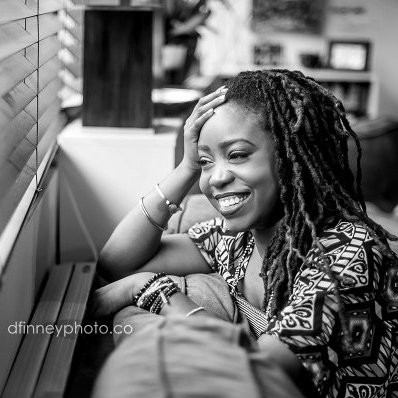
The California Cloth Foundry is a small, sustainable textile company. It makes all-American products that are good for humans and good for the earth. The company's founder, Lydia Wendt, formed the Foundry after collaborating with North Face on the uber successful Backyard Hoodie Project. Wendt was a pillar of the project’s success, and has since launched her own line of American-grown-to-sewn sustainable soft goods.
The Backyard Hoodie Project
The North Face’s Backyard Hoodie Project was launched in 2014 as an effort to design and craft a unique apparel collection from seed to garment, all within a 150-mile radius of the company’s San Francisco Bay Area headquarters.
Although the company didn't meet its strict start-to-finish production goal, (the yarn was spun and knit on the East Coast), the Backyard Hoodie was declared the most sustainable product the North Face had ever produced. It became a shining example of how a successful collaboration with local farmers and craftsmen can produce a socially responsible and waste-reduced garment.
https://www.youtube.com/watch?v=vAXFcoy5TLA&feature=youtu.be
In the initial stages of the project, the North Face partnered with Fibershed, a local nonprofit which develops regenerative textile systems that are based on carbon farming, regional manufacturing, and public education. Fibershed in turn recruited Wendt to incorporate her textile expertise and sustainable production model into the design and commercial development of the Backyard Project Hoodie.
Cleaner Cotton
“I was tasked with managing the supply chain, designing textiles and putting the project together,” Wendt told TriplePundit. She sourced materials from domestic mills and designed yarn and textiles which incorporated high quality, California grown, Cleaner Cotton from the Sustainable Cotton Project.
California already produces some of the highest quality cotton in the world, characterized by its long and extra long staple fibers. Cleaner Cotton is not only cleaner than conventional cotton, it is stronger, softer and longer wearing than the majority of mass produced cotton due to its superior fiber attributes.
Cleaner Cotton not only supports farmers who are using sustainable cotton cultivation systems, it eliminates the use of the most toxic chemicals in cotton farming. This reduces the amount of toxicity from agricultural run off that pollutes our air, soil and local water sources. Cleaner Cotton is making measurable inroads into natural resources conservation and financial sustainability for growers.
A sustainable supply chain
From fiber to fashion, the California Cloth Foundry produces products and textiles that are grown and sewn in the U.S. The company boasts a completely sustainable all-American supply chain.
“Our production model is not very conventional,” Wendt explained. “Traditionally, you depend on the supplier for vetting the supply chain. But a lot of times you might be given incorrect information and brands are made to think that a product is more sustainable than it actually is. The best way to trust the supply chain is to really know it.”
“I go right to the source and work directly with the farmers. I go to the wool mills where the wool is produced and processed. You see your bail of cotton being tagged and bagged. I speak directly to the farmers about their crops. This way I can know exactly what the product is and can share it with clarity. Every single step of the supply chain I speak with the owners, suppliers and technicians. It’s all about building relationships. It’s an arduous process.”
Every step that Wendt takes is slow and purposeful. To her, sustainability starts with a transparent and well-documented local supply chain that considers the full ecological and social footprint of product development. This means that each aspect of production has been labeled, barcoded, registered, inspected, and thoughtfully designed to meet the highest ecological and ethical standards.
This not only includes environmentally sustainable fibers and non-toxic processes, but also a focus on fair wages and healthy working conditions from the agricultural workers on through to the mill and factory employees. In addition, there are no toxins added during yarn and cloth production or garment manufacturing. This means no harmful chemicals are released into the air or onto the skin of the company’s supply chain partners, its employees, or the consumer.
The future of sustainable fashion
Wendt believes that within the garment industry “sustainable” is a term in danger of losing currency. For many big fashion brands, it’s all about, “going off shore and dictating what they want to factories and not ensuring what is happening," Wendt said. "Sure, a product is using bamboo, but is it toxic bamboo? The worry is that every brand wants to say that it’s sustainable. They use one recycled plastic fiber or organic cotton just for marketing.”
She believes that we have to do more to educate consumers. “The consumer is the one who has to be impassioned to spend more on the product and will drive the brand to develop more sustainable products.” Although partnering with larger brands may be in the future for the California Cloth Foundry, for now Wendt enjoys working with smaller brands and designing products for the company’s dedicated customer base.
As for the future of sustainable fashion, she envisions large department stores and brands, restructuring themselves to be able to collaborate in a better way with slow makers, and designers. As labor becomes more important, we will see prices raise across the board. This will hopefully make consumers value products more, slow down and be less wasteful.
California Cloth Foundry is all about slow, transparent and thoughtfully collaborative design and production. “I’m not a leader and I’m not a follower,” Wendt told us. “I’m just a part of the movement to make solid beautiful quality products that are sustainable and nontoxic.”
Images courtesy of The California Cloth Foundry (used with permission)

Joi M. Sears is the Founder and Creative Director of Free People International, a social enterprise which specializes in offering creative solutions to the world's biggest social, environmental and economic challenges through the arts, design thinking and social innovation.














